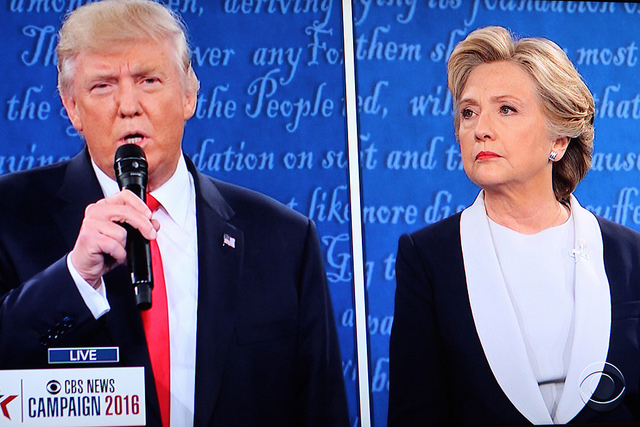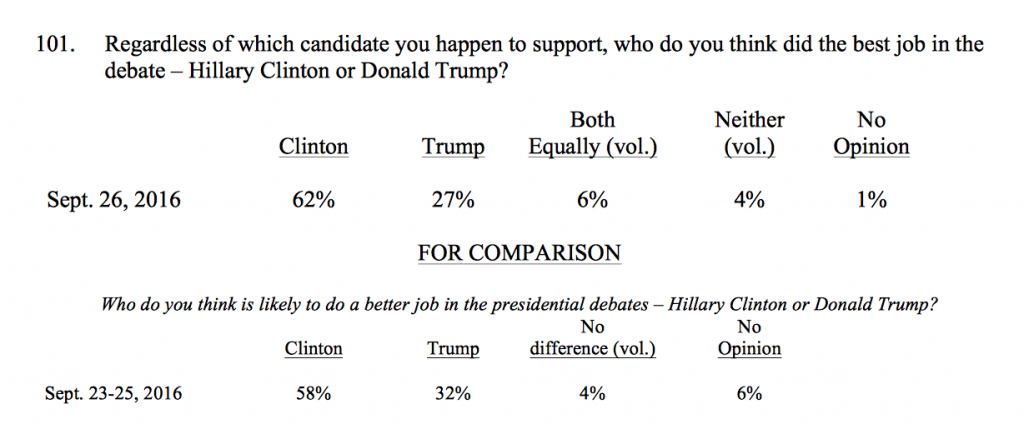A pedestrian bridge on Florida International University’s campus collapsed March 15, 2018, killing nine people and injuring six more. Brant Houston, the John S. and James L. Knight Foundation Chair in Investigative and Enterprise Reporting at the University of Illinois, has more than two decades of experience as an investigative reporting and has covered many similar incidents. The Center for Journalism Ethics talked with Houston about the ethical challenges of covering such incidents and about the current state of investigative journalism at-large.
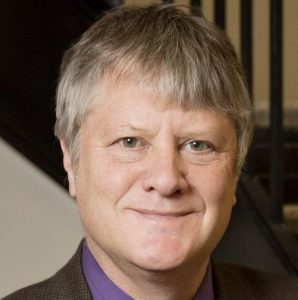
Can journalism outlets and more specifically investigative reporting units continue to devote resources to some of these infrastructure related stories before problems occur or do the lack of resources lead to them being more reactionary in their coverage?
Well there are newsrooms that do these before hand, say a single thing like a pedestrian bridge maybe not, but one thing that is typically done across the country is news organizations is looking at bridge inspection. Oddly enough, pedestrian bridges don’t fall under the Department of Transportation rules and so pedestrian bridges are pretty much left up to municipalities. But in any case, newsrooms are doing stories before hand. One of the greatest examples was the New Orleans Times-Picayune, which four years before Hurricane Katrina did a five-part series on the devastation that would hit New Orleans if a major hurricane landed. So that’s probably one of the best examples I ever saw of investigative reporters and editors being proactive and we actually put that on the front of our web page showing an attempt of a newsroom to give a warning. There are stories that are done ahead of time and bridge inspection ones seem the best. Now, certainly, you saw a lot more of those stories after a Minneapolis-St. Paul bridge collapse where everybody is looking at their bridges and the same thing in Seattle. I think people tend to forget the stories done beforehand. They remember the stories done after, but seldom to do they remember right away: “We were warned about that.”
Is it difficult to allocate those resources to infrastructure projects as sometimes in inspecting them, there are no problems to be found?
I think it’s tougher for what would have been the traditional print newsroom. I think there’s no question about that. We probably lost 60 percent or more of the editorial staff, at least in the U.S. and that’s just a fact that you can’t always do more with less. I do think that the smaller newsroom and even the greatly reduced newsrooms can do more with accountability because of the increasing sophistication when it comes to using data. So, for example, there’s no way a newsroom now could really do what it could do on bridges if there wasn’t a national bridge inventory, which is a database of all the bridges in the United States. And, in addition, states have them and the other thing that’s happened, at least since 2001, a lot of the databases that were taken down on national infrastructure have gone back up. Not enough, but they have gone back up. So for example, there is the national dam inventory and even when they took that down after 9/11 you could still use it because dams don’t move unless they collapse so a lot of the data was still good.
How else do you think data has changed investigative reporting?
One way is that you can go through tens of thousands, hundreds of thousands of documents very quickly. And with even a rudimentary look at things whether in Pivot Table in Excel or a query in a database manager, you can quickly see patterns and outliers. And that used to take days and weeks – really weeks and months – and that can be done once you have the skills within a couple of hours, so that changes things. Second of all, you have so much more credibility that used to be way back then you couldn’t look through all the documents, say 10,000 documents, you could look at 200 randomly or do a spot check. Now you say, “We looked at the whole population of documents, this is what they say.” You can also say, “You’re making policy on these documents, but you know what, we looked at them and they’re flawed. So how can you make reasonable policy when you’re working with flawed data.” So that takes you to a whole new level of investigative reporting. You now have the ability to do profound stories that you couldn’t do before and certainly you couldn’t do now unless you had those skills.
How has social media changed investigative reporting?
I think we’re continuing to develop the best ways to analyze social media, but one of the great examples was a few years ago at The Guardian in which it looked at where the rioters and race riots they had in several major cities were coming from and how they communicated. We couldn’t have done that without access to social media and without the tools to see those kinds of patterns. So that’s changed too.
We’ve also had the ability to crowdsource. So although there is some unreliability with crowdsourcing you’re at least getting a much broader section of comments then you would have if you were just walking down the street.
What are the biggest ethical challenges of the crowdsourcing method?
I think you can get tips from social media, but I think the credibility of who’s sending you them – as we all know from the rise of the bots – the credibility of those folks is a challenge. Now, on the other hand, if you find that there is a lot going on that doesn’t have credibility that it’s bots or it’s trolls, then there you have another story. But you do have to look at the credibility of them.
There are always the three pillars of reporting. Those are data documents, interviewing real people with real people and then there is observation, that’s getting out in the field. So for example, on bridge data, it’s incredibly important that journalists talk to experts and inspectors and so fourth, but they also should go out and look at some of the bridges that are supposed to be so bad. So if you’re doing all three, you have a much better chance at being credible and trustworthy and getting the story right.
Can citizens seek these records out? Can they have some role in investigating these potential infrastructure shortcomings?
I think that more and more of that has happened. The challenge that people have is a lot of people say, “anyone can be a citizen journalist.” Well, anyone who has gotten training or on the job training or education training knows that there are a lot of things you have to learn to be a credible reporter, but there’s no question that someone steeped in data analysis can get on the web, see some open government information and do some basic analysis and point out some basic problems or issues. Again, there’s some folks that say, I’ll do some quick analysis, I’ll do some visualization, I’ll throw it up on the web. If you throw it up there without some kind of explanation and some kind of understanding, it’s interesting but it doesn’t necessarily always attract attention or doesn’t get even understanding from an audience.
Years ago, Adrian Holovaty and his team at Everyblock, (a neighborhood news and discussion site) did some great work in terms of visualizing data, but they didn’t check it out in terms of what journalists did. They ended visualizing crime data in Los Angeles a few years ago, and the data had some serious flaws. It put crimes in locations which crimes never occurred and if they had looked at where some of those crimes were clustered there’s no way they could have occurred there and the Los Angeles Times did a very nice job when it analyzed the data and also did a nice, wide interview with Adrian Holovaty on the importance of checking the integrity of data.
And so, a number of programmers have said that when they switch to becoming journalists, they are surprised that you really need to get it right on the first try because they’re used to going through several versions of software until they get it right.
In general, what are some of the biggest challenges you think investigative reporters face? Or similarly, what do challenges newsrooms face when dealing with investigative reporting?
Time. It’s always been time. Investigative reporting often requires more time. Time is money. Time is taken away from other potential stories. It’s riskier in that you don’t know what your result is. If you’re doing it in certain countries, it’s risky to your health and well-being in life.
There are a series of risks, the first risk being that you’re going to spend time on something and not come back with something. Investigative reporting in some ways is the research and development arm of journalism. So there’s a risk of not coming back with something and then there’s a risk of being threatened, crossing funders or advertisers and there’s the risk of having the people you’re reporting on come after you either verbally, physically, and these days electronically. There are a number of journalists in the U.S. that have trolls coming after them all the time.
Are there certain ethical concerns investigative reporters face when they go out in the field?
The stakes are usually higher, so that the ethical concerns are typical to that of a doctor, so first of all, do no harm or minimize harm. So I believe there are ethical challenges almost daily in investigative reporting. If this comes out how will it impact this person or this institution? Are you hearing the other sides of a story thoroughly enough. Just by making a phone call can you expose somebody to attack or ridicule. You’re trying to make sure you’re taking care of people while you’re doing this in the proper way. And possibly if you have a story that could result in the resignation or the loss of a job of someone that’s high impact. So you better think about ethics everyday.
From the perspective of a professor, when teaching students about investigative journalism, how do you break the mold and show them that investigative journalism is not all the glamour that movies like Spotlight or All the President’s Men make them out to be?
I think you learn by doing. And I think Spotlight and even All the President’s Men did show some of the challenging drudgery of doing investigative reporting. But I think the romance of, “Oh I made a couple of calls and now I have a great story,” disappears very quickly after you’ve had to spend the equivalent of a day looking through data or documents. You realize it’s the excitement or interest in looking at content or talking to people that keeps you going. So I teach it by people working on stories. I had a class in which two students had to keep going back to the department of environmental education in Illinois and the data was incomplete and then it was incomplete again. The bloom is off the romance after about the third time you have to go back and you’re still getting incomplete information.
What are the basics you first emphasize with students who are learning about investigative reporting?
Well there’s one that the great team of Don Barlett and Jim Steele had which was getting in a document state of mind. I think journalists are used to doing interviews. Even though you have to practice and get better at them, they’re used to doing interviews. They’re used to walking down that road, going out and interviewing people, getting out into the field or getting people on email. But to actually say, “I want to find a document that either supports, contradicts or gives some nuance to what somebody just said,” or will give that to somebody you will interview in the future, I think that takes some practice, getting in that document state of mind.
The other thing I would mention is that taking on investigative reporting class doesn’t mean you’ll become an investigative reporter. It does ensure that you’ll be a much better reporter and if you’re editing the stories, you’ll have to become a much better editor. So one of the reasons that investigative reporters in the global investigative network are so popular is that by taking their training you get skills that you can use in everyday and weekly and monthly reporting. That’s something else I also emphasize. You may not want to do the long-term project that results in a series of stories or one big story, but you know whatever story you touch after you get these skills is better.
What skills are most important?
Data. The ability to seek out data and documents. The fact that you should improve your interviewing techniques, I think it improves your preparation for interviews. It’s as basic as not asking somebody how to spell their name, but asking them to confirm the spelling that you’ve got the spelling right.
The one other thing I want to mention more than ever is the need for thoroughness and the need for accuracy and the need for transparency, especially, if there’s some uncertainty in what you have in your data or in your interviews. I think some reporters are worried about having uncertainty in there reporting and I think investigative reporting training will give a reporter the confidence to say, “This is as much as we know.”
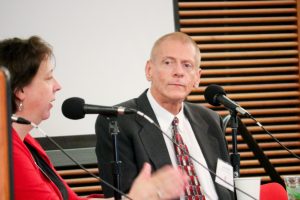


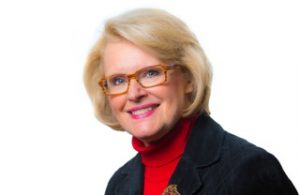 Jill Geisler, the newly appointed Newseum Institute Fellow in Women’s Leadership,
Jill Geisler, the newly appointed Newseum Institute Fellow in Women’s Leadership, 